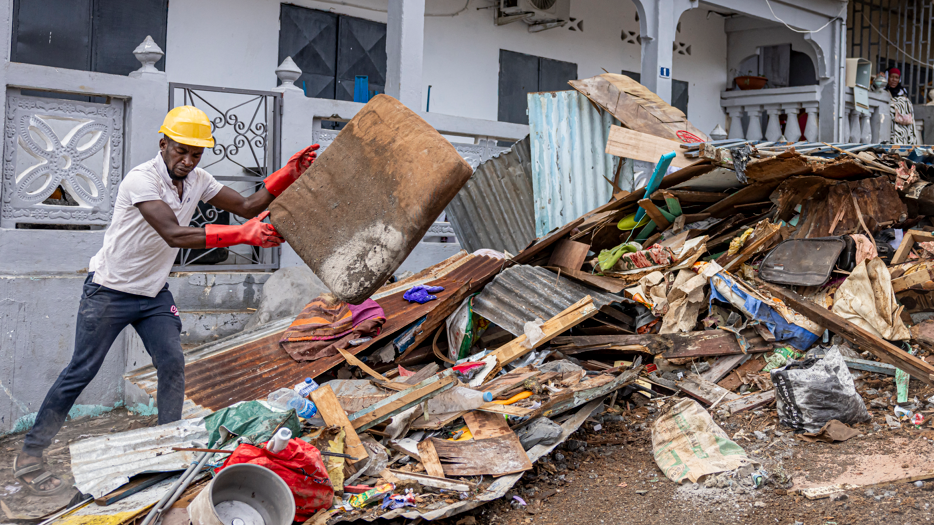France is set to observe a day of national mourning in response to the devastation wrought by Cyclone Chido in Mayotte, its Indian Ocean territory, earlier this month. This move was announced by French President Emmanuel Macron during his visit to the island, where he faced public discontent over the perceived slow response in delivering aid to affected residents. The cyclone, which struck on December 14, brought with it catastrophic winds reaching up to 260 km/h and unprecedented rainfall that left many islanders in dire circumstances. This tragedy is compounded by the fact that Mayotte, situated between the African mainland and Madagascar, was already classified as France’s poorest territory prior to the storm’s impact.
The cyclone has been characterized as the worst storm to hit the archipelago in nearly a century, with areas heavily populated by residents living in makeshift structures suffering severe destruction. As a result, many survivors are currently grappling with the complete loss of essential services such as water, electricity, and communications. The aftermath of Chido has revealed a staggering human toll, with initial reports indicating that at least 31 people have died, although many officials anticipate that the actual number is significantly higher, given that thousands are still unaccounted for.
In the aftermath of the storm, French officials reported significant casualties, with the cyclone claiming additional lives in Mozambique and Malawi. Macron has pledged to prioritize the rebuilding of devastated infrastructure, expressing his commitment to assist in the recovery of the island. During his aerial survey of the disaster, he reflected on the harrowing impact of the storm, promising to work towards restoring what has been lost. However, his visit was met with mixed emotions, as islanders vocalized their frustrations and demanded more robust government support for recovery efforts.
Local officials and the Prime Minister have characterized the disaster as possibly the worst natural calamity in centuries for France. Currently, the Red Cross has stepped in to provide shelter for over 100,000 individuals who are displaced due to the cyclone’s destructive power. These shelters are a temporary solution, but there are growing concerns about the long-term needs of the population, particularly in terms of housing and basic services that have been compromised due to extensive damage.
In light of the brewing humanitarian crisis, the day of mourning will serve as a reminder of the collective grief felt across France. Cities like Paris, Marseille, and Lyon are set to participate in this nationwide tribute, marking an effort to unify the country in support of those suffering from the cyclone’s aftermath. The flying of flags at half-mast during this day signifies not only the loss of life but also the resilience of the affected communities as they begin the arduous journey to recovery and rebuilding.
As France moves forward, the emphasis on community support and the government’s responsibility in disaster response will remain crucial. In light of this tragedy, the urgency for a cohesive strategy to aid and rebuild in Mayotte is paramount, with lessons from this cyclone potentially shaping how future natural disaster responses are managed. Macron’s government faces a significant challenge in addressing both immediate needs and long-term recovery strategies in the face of overwhelming devastation.

